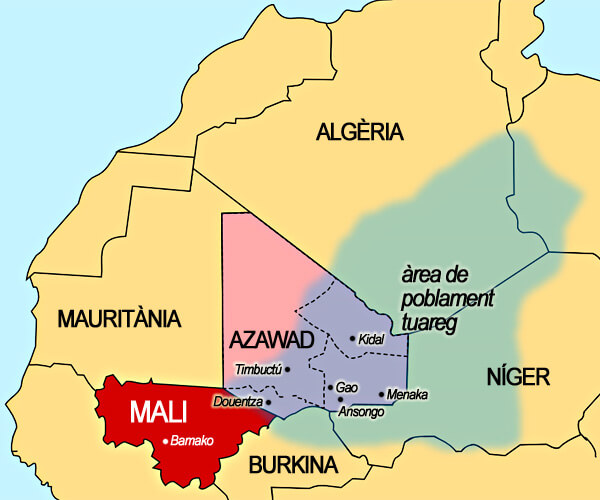The Republic of Mali is a landlocked state in West Africa that extends into the Sahara Desert in the north, where its north-eastern border with Algeria begins. An estimated 90% of Malians are Muslim (mostly Sunni and Sufi), approximately 5% are Christian (about two-thirds Roman Catholic and one-third Protestant) and the remaining 5% adhere to indigenous or traditional animist beliefs
The Constitution of Mali recognises the country’s cultural diversity and the National Pact recognises the specific nature of the Tuareg regions. In addition, legislation on decentralisation gives local councillors, including some Tuareg, a number of powers although not the necessary resources with which to exercise them.
Mali voted for the adoption of the United Nations Declaration on the Rights of Indigenous Peoples by the UN General Assembly.
International Work Group for Indigenous Affairs, The Indigenous World 2011



